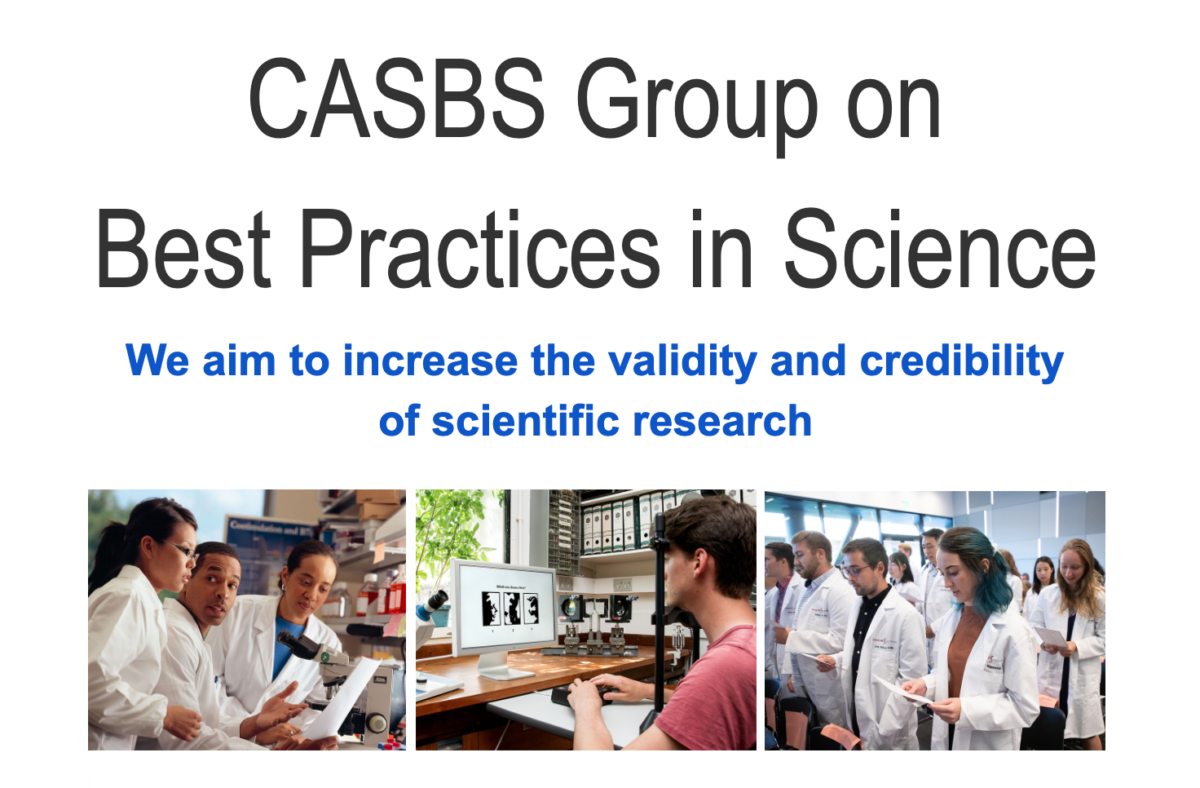The primary goal of scientific enterprises is to “get it right” with scientists seeking to accurately document the world as it is. However, an array of accumulating evidence suggests that all may not be well in the house of science. In medicine and psychology, there have been numerous failures to replicate highly influential findings, and even when an initial finding is replicable, effect sizes in subsequent replications are often notably weaker. If we stand on the shoulders of research with either findings or interpretations that mislead us, we run the risk of failing ourselves, and a larger scientific community runs the risk of failing to get it right.
Beginning in 2013-2014, Stanford University’s Center for Advanced Study in the Behavioral Sciences has hosted a group of scholars focused on such topics, called the Group on Best Practices in Science. The group continues as a collaboration coordinated by scholars at Stanford University, Rutgers University, and University of California – Davis.
This website is a product of that collaboration and represents one attempt to increase the validity and credibility of scientific research. It documents research on how scientific practices may become compromised and provides a platform to spur discussion about such issues.
Specifically, the website describes the members and activities of the BPS Group, offers a compilation of academic publications, news articles, and web postings related to the subject, and lists other online resources about scientific practices, as well as a compilation of organizations with similar missions addressing similar issues.
Jon Krosnick delivers an address on best practices in science at Princeton University in December 2016
Lee Jussim, of Rutgers University, delivers an address on failures in the natural and social scientific method at Claremont McKenna College in January of 2017.
